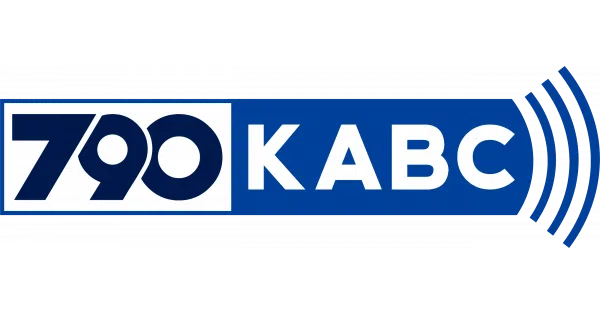Fresno County Whistle Blower Attorney
Could your reporting of protected activity have caused your termination of employment? Both direct and circumstantial evidence may be used to prove causation. CACI 2430 only requires that the violation of public policy was a "motivating factor." An employer is liable for wrongful termination even if the termination was only partially motivated by an illegal reason.
The Importance of Timing in Retaliation Cases
Case law does not establish any hard and fast rules about how long can transpire between the protected activity and the adverse employment action. This is a fact based question. California cases have allowed retaliation claims to go forward, based upon timing, even when long periods of time have elapsed.
- In Colarossi v. Cory, a firing in February 1998 was found to have a retaliatory motivation for participation in a sexual harassment investigation that occurred in May 1997.
- Akers v. County of San Diego supported retaliation claims occurring up to February 1999 based on a complaint written in October 1996 complaining of gender and pregnancy discrimination.
- Iwekaogwu v. City of L.A. affirmed a verdict involving retaliation that occurred years after the initial complaint of race discrimination.
- In Flait v. N. Amer. Watch Co., the court held that "pretext may be inferred from the timing" of the termination decision.
Whistleblower Protections in Healthcare and False Claims
- Health and Safety Code Section 1278.5(b): Prohibits healthcare facilities from discriminating or retaliating against employees who present complaints or grievances about the care, services, or conditions of a facility.
- False Claims Acts (Federal and State): 31 U.S.C. 3729 and California Government Code Sections 12650-12651 prohibit all companies from making false claims for reimbursement (such as to Medi-Cal or Medicare). False claims often involve submitting claims for services not rendered, or inflating the charges.
- Patient Abuse Reporting: Government Code Section 12940(g) protects hospital employees who report suspected patient abuse by health facilities or community care organizations. Employees in nursing homes, assisted living facilities, or adult day care facilities may not be mistreated for making such reports.
- Healthcare workers are also whistleblowers if they are fired for making a complaint about something that they believe would result in the loss of their license, or for refusing to perform a service they are not licensed for.
Whistle blowing in the work environment, especially the healthcare field, has become an issue, resulting in the termination of some individuals. Contact an experienced Fresno employment attorney today. Serving All Of Fresno County.
Contact us or call (818) 783-7300 to speak to a Fresno whistle blower lawyer.
Our Firm: No upfront fees or costs
Contingency Fee Representation
All employment cases for employees are taken on a contingency basis. We are only paid a fee when and if we win your case, and we advance all litigation costs. Our goal is to make expert legal representation accessible to every hardworking employee.
Serving Fresno County
We have proudly served all of Fresno County since 1993.
The Employment Lawyers Group has successfully handled
2,000+
Separate California Employment Cases
Media Engagements
Sample Case Results
Employment Case
$18,402,868
Jury verdict for male visually harassed and subject to crude comments by a female manager
breach of commission contract
$1,150,000
Unpaid commissions of two plaintiffs
unpaid wages
$875,000
For 4 oil field service industry workers whose times worked were not recorded on timesheets and were on-call
Disclaimer: These results are based on the facts of these specific cases and do not guarantee or predict a similar result in any future case.
Practice Areas
Discrimination
Age, Disability, Family Medical Leave (FMLA/CFRA), Gender, National Origin, Pregnancy, Race, and Sexual Orientation claims.
Unpaid Wages & Overtime
Recovering earnings for Overtime, Bonuses, Commissions, Meal & Rest Breaks, and Prevailing Wage violations.
Sexual Harassment
Compassionate and effective representation for victims of sexual harassment and hostile work environment claims.
Wrongful Termination
Representing employees terminated in violation of public policy, contracts, or California and Federal law.
Leaves & Retaliation
Protecting employees who face adverse actions after reporting illegal activity or taking protected medical leave.
Whistleblowers
Advocating for employees who report fraud, waste, or abuse in their organizations under whistleblower protections.
Our California Locations
![]() Bakersfield
Bakersfield
5401 Business Park S, #214,
Bakersfield CA 93309
![]() Sacramento
Sacramento
777 Campus Commons Rd, #200,
Sacramento CA 95825
![]() San Francisco
San Francisco
524 Union St, #400,
San Francisco CA 94133
Additional Sites
About Firm Founder, Karl Gerber
Firm Founder, Karl Gerber, has been an employment wrongful termination attorney since 1993. He has represented a wide range of employees throughout California.
Mr. Gerber has won 51 of the binding arbitrations and jury trials he first chaired, and a number of his appeals are published. This deep trial experience is the foundation of the firm's strategic approach to litigation.
The employment attorneys employed by the Employment Lawyers Group have worked at the firm well in excess of five years, have also tried many different labor cases, and have all been extensively trained on employment wrongful termination by Karl Gerber.
Ready to Discuss Your Case?
Your rights as an employee matter. Contact us for a free, confidential case review.
Contact Us
Share Your Workplace Situation Directly With Our Attorneys Via This Form.













